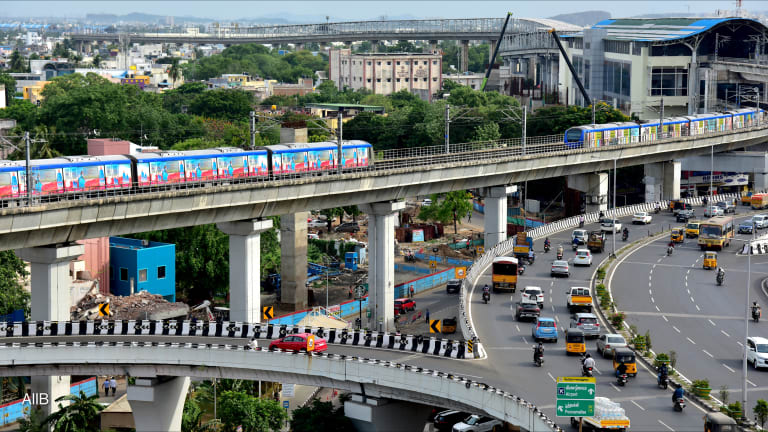
Asia-Pacific is at a crossroads in its development progress.
While several countries are experiencing rapid economic growth, increased water and sanitation access and wider health coverage, a fifth of the almost 5 billion people in the region still live on less than $1.25 a day.
Several development initiatives have been put in place, including the regional malaria alliance for health that is currently gaining traction in fighting the disease. But these gains, according to the Asian Development Bank, may be put to waste if Asia-Pacific slips and loses development momentum — which could well happen without enough technical and financial assistance.
ADB President Takehiko Nakao believes co-financing, private sector engagement and partnerships are the key to bridging this development gap, and vital elements that could put the region’s development progress into new heights.
“While incomes are increasing [in Asia-Pacific], so too are inequalities,” the ADB chief, who celebrates his first year in office this month, said in the bank’s annual report released on Monday. “Given the region’s large need for development finance, we will increase efforts to generate more investments through co-financing and private sector operations.”
Private sector engagement — as a form of additional financing — is not just a suggestion, but a crucial need in the region. ADB has been pushing for this approach for the past couple of years, given the sheer need for resources to meet the region’s development demand.
For the next three years, the Manila-based institution has earmarked around $66.7 billion for loans, grants and assistance for developing member countries. In 2013, ADB committed a total of $21.02 billion. But, as has been emphasized time and time again, the needs are much higher, not mentioning the annual $800 billion needed to invest in infrastructure across the whole region.
Together ahead
In an earlier interview with Devex, Bindu Lohani, ADB vice president for knowledge management and sustainable development, explained that the Asian growth story should not just be a narrative of rich nations doling out money to the poor ones.
It should also be a tale where the private sector takes a key role in making the region’s development sustainable through active participation and engagement.
“The private sector plays a critical role in creating employment opportunities that support inclusive and environmentally sustainable growth,” the bank said in its annual report.
ADB plans to optimize the technical know-how of businesses to deliver more efficient, effective and appropriate development programs to developing nations while providing advisory and development guidance to these firms through its Public-Private Partnership Operational Plan 2012-2020.
In 2013, the bank approved 41 percent of the total projects in partnership with the private sector, while simultaneously assisting partner governments and economies to be more business and investment-friendly through policy reforms including “better and more transparent business regulations, and simpler tax and trade policies.”
Moving forward, the private sector should not lose its sight on the ball and continue to strengthen the chains of engagement with development agencies, and vice versa. By 2020, ADB intends to have half of its annual operations to focus on private sector development and support.
Small (but progressive) steps
Also central to the bank’s annual report is its underlying development framework “Strategy 2020: Working for an Asia-Pacific free of poverty” focused on 3 pillars: inclusive economic growth, environmentally sustainable growth, and regional integration.
The first 2 pillars have been given much attention the past 12 months. For inclusive economic growth, some indicators were added in the bank’s results framework for better evaluation and monitoring, including high and sustainable growth for job creation, wider access to economic opportunities and better social safety nets coverage for the poor.
As for green growth, the bank approved last year the Environment Operational Directions that will run until 2020. The report outlines Asia-Pacific’s dire environmental situation and how ADB will spearhead efforts to address it, on top of $2.35 billion in clean energy investments approved in 2013.
“These pillars, as focus points, make for a good path for the region moving forward,” Emmanuel Yujuico, research fellow at the London School of Economics and Political Science, told Devex.
2013 has been a transition year for ADB, with a change in leadership just a month before its annual meeting in India. Nakao, Japanese foreign ministry international affairs vice minister, succeeded Haruhiko Kuroda, who stepped down after 8 years.
Nakao, along with the bank’s board, ordered upon taking office a mid-term review of the Strategy 2020, an initiative launched under Kuroda in 2008. Among the considerations in the review included a more results-oriented focus to optimize the bank’s limited resources through revisions of performance management indicators, among others.
ADB is set to release the midterm review of its Strategy 2020 on Wednesday, a week before the May 2-5 annual meeting in Astana, Kazakhstan. The region’s development progress and future will take center stage during the event along, with debates over how to tackle ongoing development issues like climate change, disaster management, infrastructure, partnerships and effectiveness, to name a few.
These discussions and exchanges of ideas are expected to encourage policy discussions and reforms to push Asia-Pacific development ahead, albeit with small steps (for now).
Read more development aid news online, and subscribe to The Development Newswire to receive top international development headlines from the world’s leading donors, news sources and opinion leaders — emailed to you FREE every business day.








